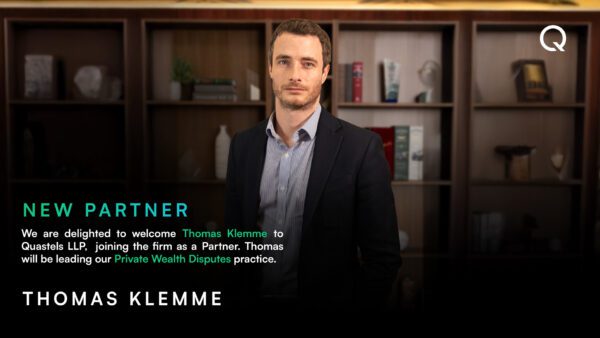Latest Posts

Family Friendly Leave: What’s New, What’s Coming and What Employers Should Do Now
Family-related employment rights are continuously expanding and becoming increasingly more detailed. With the Government set to introduce even more changes over the next two years, I have summarised the key details of what’s new and what to expect.
Recent Changes Already in Force
Neonatal Care Leave & Pay
Eligible parents whose babies meet the qualifying conditions and require specialist neonatal treatment have a right to take up to twelve weeks of leave from day one of employment.
What does this look like in practice? Where an employee has a premature baby that spends several weeks in hospital, they can take neonatal care leave on top of their maternity, paternity, adoption or shared parental leave.
What about the pay? Eligible employees will receive statutory neonatal care pay which is calculated using the standard statutory formula like maternity/paternity pay (i.e., the lower of £187.18 per week or 90% of average weekly earnings). This is designed to give parents genuine breathing room during what is often an overwhelming and emotionally difficult period.
When does it need to be taken? This leave is flexible and can be taken in blocks or as one period (depending on the regulations and employer policy). In reality, most parents take it immediately following a neonatal admission, but the rules allow the leave to fit around individual family needs.
Statutory Carer’s Leave
Employees now have the right to one week’s unpaid carer’s leave per year to provide or arrange care for a dependant with long-term care need. This right is available from day one of employment.
What counts as a long-term care need? A dependant with a long-term care need is someone that may have:
- an illness or injury requiring care for more than 3 months; or
- a disability under the Equality Act; or
- care needs related to old age.
Employers are required to grant this type of leave and may only postpone (not refuse) in exceptional circumstances, i.e., where taking leave at the requested time would cause serious operational disruption.
Many employers understandably confuse carer’s leave with other similar types of leave. There are clear distinctions between these types of leave as follows:
- Carer’s leave: unpaid leave for planned or foreseeable responsibilities for someone with a long-term condition
- Time off for dependants: unpaid leave for short notice or emergencies regarding dependants
- Compassionate leave: discretionary leave to deal with traumatic events or bereavement. This can be paid or unpaid depending on the company’s policy.
Proposed Changes Under The Employment Rights Bill
The Employment Rights Bill (“the Bill”) builds on these developments and signals a further strengthening of family-related rights. At this stage, the Government has made it clear that it intends to expand statutory protections as follows:
1. Enhanced protection against dismissal for pregnant against dismissal for pregnant employees / new parents
The Bill proposes to strengthen protection against dismissal for pregnant employees, new parents and those taking statutory family-related leave, including neonatal care leave and pregnancy-loss bereavement leave.
In relation to pregnant employees and new mothers, the period of protected employment could be extended. This is still in consultation with proposals suggesting the protected period spans 18 months from the birth of the child or 6 months from the return to work (i.e., the end of maternity leave).
The aim is to ensure that returning to work does not immediately place employees at risk of redundancy during a particularly vulnerable period.
2. Bereavement leave for pregnancy loss
One of the most prominent proposed changes is to extend statutory bereavement leave to cover pregnancy loss, including miscarriages before 24 weeks. This new right would give employees formal time off to grieve, rather than relying on sympathetic managers or annual leave. The duration, notice requirements and whether the leave is paid remain under consultation. This change is expected to take effect in 2027.
3. Paid carer’s leave
The Bill proposes to convert the above current one-week unpaid entitlement into paid leave at the employee’s normal pay rate.
This may lead to increased payroll costs and a potential increase in employee’s taking carer’s leave. It is essential that employers have clearer systems for managing and recording care-related absences.
There is currently no confirmed implementation date for paid carer’s leave. The earliest commencement date based on the Government’s implementation roadmap is April 2026, however paid carer’s leave is not presently identified as part of that tranche.
4. Day one rights for paternity and parental leave
The Bill proposes to expand paternity leave and unpaid parental leave so that they become available from the first day of employment, removing the current service-based eligibility thresholds. These measures will take effect in April 2026.
In practice, this means a new starter may qualify almost immediately which is something employers will need to factor into workforce planning.
5. Flexible working
It is proposed that where an employer refuses a flexible working request, they must give a written and reasonable explanation for the refusal. The statutory 8 business grounds for refusing a request remain the same, however the requirement for justifying a rejection is a new development under the Bill. This change is expected to take effect in 2027.
Therefore, the change reflects that flexible working will become the default from day one and a normal working arrangement unless there is a clear business justified reason to not allow it.
It is important to note that these proposed changes are not yet final. Although the Government has set out its commitment to the family related reforms, the detail and timing remain subject to consultation and secondary legislation. The Bill is progressing through Parliament, and the Government aims for Royal Assent in late 2025.
Implications For Employers
These relatively new changes and the proposals under the Bill represent a much more complex and protective family friendly framework.
Employers should ensure:
- their policies accurately reflect the recent changes of the new neonatal care regime and carer’s leave entitlement;
- payroll systems are adjusted to accommodate the revised statutory rates and eligibility rules for neonatal pay or carer’s leave if/when this change comes into effect;
- managers have appropriate training and clear guidance on how to respond to leave requests, particularly in sensitive circumstances such as neonatal care or pregnancy loss; and
- absence management procedures and record keeping are place and regularly updated.
To discuss the contents of this article, contact our employment team via the form below.
Read More
Announcing the Promotion of Tracy Hon to Partner
We are delighted to announce that Tracy Hon has been promoted from Senior Property Counsel to Partner at Quastels LLP.
Tracy joined Quastels six months ago from Forsters LLP and has made a remarkable impact in that time. With over two decades of experience in prime-central London real estate transactions, her technical excellence, commercial awareness and practical approach have quickly strengthened our Residential Real Estate team and bolstered our wider client offering.
Enhancing our Residential Real Estate Leadership
Tracy’s promotion reflects both her outstanding performance and our commitment to investing in senior talent who enhance our strategic priorities. In her new role as Partner and Head of our London-based Asia Pacific Desk, Tracy will lead the firm’s property practice for APAC-based international real-estate clients, working in close collaboration with our Private Wealth and Immigration teams to deliver comprehensive advice for global clients. Since joining us, she has represented the firm in Hong Kong and Singapore.
Her deep experience advising multinational clients, overseas financial institutions and developers through complex UK and Asia-Pacific transactions is a key asset as we continue to grow our presence across sectors and geographies. Tracy is a Cantonese speaker.
If you’d like to discuss how Tracy and her team can assist you in residential real estate matters, whether UK-based or international, please contact her via her email, thon@quastels.com, or call +44 7436 393062.
Read More
Announcing the arrival of Thomas Klemme as Partner
We are delighted to welcome Thomas Klemme to Quastels LLP, joining the firm from Wedlake Bell as a Partner. Thomas will be leading our Private Wealth Disputes practice. Working closely alongside our Dispute Resolution and Private Wealth & Tax teams, Thomas will deliver targeted support on contentious trusts, estates and art matters, helping clients navigate sensitive disputes with clarity and precision.
Strengthening Our Private Wealth Disputes Leadership
Thomas brings a distinguished track record in complex, high-value contentious private wealth matters, and his appointment reflects our commitment to expanding our specialist expertise for clients with sophisticated cross-border needs. As the head of our Private Wealth Disputes practice, he will advise high-net-worth individuals, families, trustees and family offices on the full range of contentious trusts and estates issues.
His experience spans breach of trust claims, trustee removal applications, Will disputes, probate related litigation and high-profile art and cultural property matters. Thomas has acted in cases before the High Court and Court of Appeal and is consistently recognised by the market, including as a “brilliant lawyer” by the Legal 500 and as one of eprivateclient‘s NextGen Leaders 2025.
For matters involving contentious trusts, estates or private wealth disputes, Thomas can be contacted at tklemme@quastels.com or +44 7386 678456.
Read More